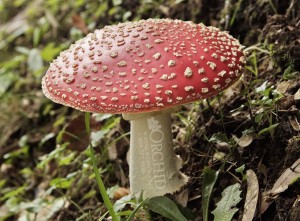Hallucinogens and Opiate Addiction Treatment

What are Hallucinogens?
Hallucinogens are a class of drug – hallucinogenics – that are compounds found in some plants and mushrooms and that have been used for centuries, mostly for the purpose of religious rituals. Almost all hallucinogens contain nitrogen and are classified as alkaloids. Many hallucinogens have chemical structures similar to those of natural neurotransmitters. While the exact mechanisms by which hallucinogens exert their effects remain unclear, research suggests that these drugs work, at least in part, by temporarily interfering with neurotransmitter action or by binding to their receptor sites.
Hallucinogens and Opiate Addiction Treatment
An up-and-coming approach to treating opiate addiction is the use of hallucinogens. More and more opiate addicts, who are desperate to try something that they think will help them get and stay clean once and for all, are turning to hallucinogens as a form of opiate addiction treatment.
Specifically, addicts are turning to one hallucinogenic in particular, known as ibogaine, a naturally-occurring hallucinogen that has been used for centuries in other parts of the world for religious ritualistic ceremonies. In fact, ibogaine is already being used in some European countries and Mexico for the treatment of opiate addiction.
But ibogaine isn’t the only hallucinogen being used for drug addiction treatment; others are also looking to LSD and ayahuasca, a psychedelic tea made from a specific vine or in combination with various plants, some of which often contain dimethyltryptamine (DMT).
Why Hallucinogens and Opiate Addiction Treatment
Hallucinogens, generally-speaking, are naturally occurring psychoactive substances found in plants. A hallucinogen with both psychedelic and dissociative properties, the substance is banned in some countries; in other countries it is being used to treat addiction to opiates, such as methadone, heroin, and narcotic painkillers and is being considered for the treatment of other drug addictions such as alcohol, cocaine, and methamphetamine.
Scientists are hopeful that hallucinogens can successfully treat opiate addiction; each one works is similar yet slightly different ways. Ayahuasca might be the best way to break drug addicts of their habit by giving them a powerful experience during which they can see their past and future selves and experience a re-birth – into a life without addiction. Many opiate addicts also turn to the use of ayahuasca as a treatment for their opiate detox, as a way to expedite it through an intense cleansing called a “purge,” which is basically a night spent vomiting and experiencing diarrhea.
Ibogaine has intrigued researchers since 1962, when Howard Lotsof, a student at New York University and an opiate addict, found that a single dose erased his drug cravings without causing any withdrawal symptoms. Animal tests have shown the drug’s medicinal promise. “Rats addicted to morphine will quit for weeks after receiving ibogaine,” says Stanley Glick, the director of the Center for Neuropharmacology and Neuroscience at Albany Medical College. And addicts have reported positive effects in Mexico and Europe, where ibogaine therapy is legal.
From the limited research, though, scientists have two theories about how the use of hallucinogens and opiate addiction treatment works. Some say it’s purely biological—that ibogaine and other hallucinogenics degrade into compounds that bind with opiate receptors in the brain to quiet cravings. Others believe that it is also psychological. Those who use hallucinogens report a change in perspective and outlook on life. Researchers believe that this aspect of the hallucination provides perspective on the negative aspects of drug use, and so the drug addict will strive to quit.
The Argument for the use of Hallucinogens and Opiate Addiction Treatment
Regardless of the mechanism, proving hallucinogens work is essential to winning approval and funding for clinical trials of using hallucinogens in addiction treatment. And, in the U.S., the sooner the better: Nearly seven million Americans abuse illicit drugs, costing the nation an estimated $181 billion a year in health care, crime and lost productivity.
Hallucinogens and Opiate Addiction Treatment: Is it Effective?
Animal tests with ibogaine have shown some medicinal promise. For example, Albany Medical College tests on rats that were addicted to morphine quit for weeks after being given ibogaine. Testimonials from addicts in Mexico and Europe, where ibogaine therapy is legal, state positive effects of the treatment.
Although research is quite limited, scientists have two theories about how the use of ibogaine and other hallucinogens work in addiction treatment. Some scientists believe that it is purely biological—that ibogaine degrades into a compound that binds with opiate receptors in the brain to quiet cravings. Others believe that it also has a psychological effect. The addicts who used ibogaine and reported that it “cured” them said that the treatment worked by changing their perspective and outlook on life.
It is important to make this distinction: hallucinogens and opiate addiction treatment might soothe cravings but it does not offer a remedy to the inevitable withdrawal symptoms that opiate addicts have to face when they stop using.
Some claim that ibogaine not only interrupts the symptoms of heroin withdrawal syndrome and reduces drug cravings for extended periods of time but that ibogaine detox for heroin addiction also allows the addict to detoxify with minimal symptoms.
If you are seeking treatment for opiate addiction or are struggling with substance abuse, call us toll-free at 1-800-777-9588 to speak directly with an Addiction Specialist. We are here to help and you are not alone. We are available around the clock to answer your questions.
